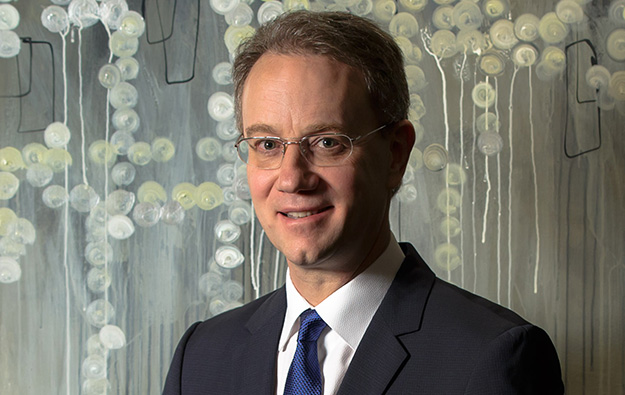Las Vegas Sands watching Vietnam closely: Tanasijevich
Mar 06, 2017 Newsdesk Latest News, Rest of Asia, Top of the deck

“Uncertainty and risk” remain for investors regarding the Vietnam casino market, said George Tanasijevich, a senior executive with casino operator Las Vegas Sands Corp, in comments reported by the Vietnam Economic Times news outlet.
But he added, in an interview published last week: “Our desire to invest and develop an integrated resort in Ho Chi Minh City and/or Hanoi remains unchanged.”
The firm has previously expressed interest in building a gaming resort in Vietnam – provided that such a facility could be open to local players.
On January 20, the Vietnamese government published a decree paving the way for selected domestic casinos in that country to accept bets – for the first time – from economically-qualified Vietnamese gamblers aged 21 and over. The initiative would be for a trial three-year period.
Only casino resorts with a total capital investment of at least US$2 billion – including gaming and non-gaming facilities – would be eligible to welcome Vietnamese to gamble, the AFP news agency reported at the time.
Based on other information coming from the country via local media, it is not yet clear how many casino resorts might be allowed to offer gaming for locals, and in what locations.
Mr Tanasijevich (pictured), president and chief executive of Las Vegas Sands’ unit Marina Bay Sands Pte Ltd – operator of the group’s Marina Bay Sands resort in Singapore – is also managing director, global development, for the group.
He reportedly told the Vietnam Economic Times, regarding investment in Vietnam: “There is still uncertainty and risk from the perspective of the investor, given that local entry is being introduced as a three-year pilot programme. We will closely follow the programme and assess our opportunities.”
Mr Tanasijevich said in order to support a multibillion U.S. dollar project and to maximise the economic benefits for the country, any resort should be in a “central urban location”. He mentioned the southern metropolis of Ho Chi Minh City or the capital Hanoi in the north, adding that schemes in such places would provide “the greatest economic impact for Vietnam in terms of job creation, increased tourism, economic growth, and tax revenue”.
MICE facilities
A Las Vegas Sands-built “world-class MICE [meetings, incentives, conferences and exhibitions] facility would help to boost tourism and enhance Vietnam’s reputation as a place to do business,” stated the executive.
“We view Vietnam as a market that has a huge upside for business and leisure tourism,” he added.
According to the Vietnam National Administration of Tourism, the total number of arrivals to the country by international visitors rose 26 percent year-on-year in 2016, to just over 10.01 million. Macau received three times that number of visitors in 2016, including arrivals from mainland China.
For Vietnam, mainland China was the largest single contributor to the annual visitor tally, accounting for 27 percent of arrivals, or nearly 2.70 million visits. South Korea was the second-largest contributor, with 15 percent of arrivals, or 1.54 million visits.
AFP reported that the Vietnam government’s January 20 decree mentioned local gamblers would need to have a monthly income of at least VND10 million (US$439) to enter local casinos and gamble.
Mr Tanasijevich was quoted saying that Las Vegas Sands’ experience of running gaming in Singapore – a jurisdiction where locals must pay a casino entry levy and where the city-state’s government actively promotes responsible gambling and harm mitigation programmes – would be of benefit were it to run gaming in Vietnam.
“We will work closely with local authorities to manage a set of social safeguards. We have experience with social safeguards in Singapore that have proven effective at lowering levels of problem gambling within the community,” the Las Vegas Sands executive was quoted as saying.
Sheldon Adelson, chairman and chief executive of Las Vegas Sands, on February 21 reaffirmed the group’s interest in building a casino resort in a major urban centre in Japan, following that country’s legalisation in December of such business. He told an investor conference in Tokyo that day, he expected it could cost up to US$10 billion to build.
Related articles
-
 Donaco EBITDA up y-o-y to above US$4mln...
Donaco EBITDA up y-o-y to above US$4mln...Jul 26, 2024
-
 Broker cuts Macau 2H mass GGR by 3pct...
Broker cuts Macau 2H mass GGR by 3pct...Jul 26, 2024
More news
-
 HK listed Palasino upgrades Czech...
HK listed Palasino upgrades Czech...Jul 26, 2024
-
 China embassy in Manila welcomes POGO...
China embassy in Manila welcomes POGO...Jul 26, 2024
Latest News
Jul 26, 2024
Border-casino operator Donaco International Ltd has achieved a 164.17-percent year-on-year increase in its latest quarterly group earnings before interest, taxation, depreciation and amortisation...Sign up to our FREE Newsletter
 (Click here for more)
(Click here for more)
Pick of the Day
”We’ve got more traction outside of Macau at the moment. But Macau’s going be a bigger focus for us”
David Punter
Regional representative at Konami Australia
Most Popular
 Sheraton brand to exit Londoner Macao, to be Londoner Grand July 25, 2024
Sheraton brand to exit Londoner Macao, to be Londoner Grand July 25, 2024  Macau regulator probes unlicensed gaming agents July 24, 2024
Macau regulator probes unlicensed gaming agents July 24, 2024  Philippines gives 20k aliens in POGOs 60 days to leave July 25, 2024
Philippines gives 20k aliens in POGOs 60 days to leave July 25, 2024  Philippines-listed DigiPlus says not affected by POGO ban July 24, 2024
Philippines-listed DigiPlus says not affected by POGO ban July 24, 2024  Sands China 2Q EBITDA down q-o-q amid low hold, renovation July 25, 2024
Sands China 2Q EBITDA down q-o-q amid low hold, renovation July 25, 2024





